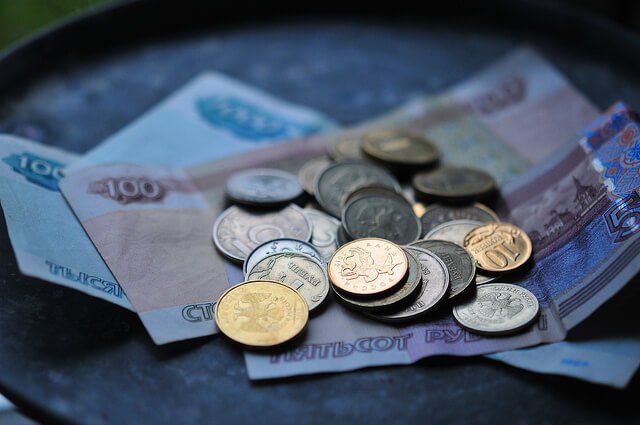The Russian rouble is doing very badly. The country’s Central Bank is trying to stem the damage with a huge interest-rate hike. And now the currency is performing worse than bitcoin.
New global trends appear year over year, old ones become outdated, and the financial markets accustom to that. This can offer new opportunities for investors to make money if their prognoses are accurate, their investments are prompt, and they choose their assets well.
The global economy is ending the 2014 year in a fragile state: euro zone business growth remaining weak, factory activity shrinking in China, and emerging market giant Russia in a spiraling currency crisis.
“These are uncertain times again and there is a risk of another global downturn,” said Stephen Webster, chief European economist at 4CAST.
Seems like the events in Russia are most eye-catching. Russia’s central bank took radical action to defend its currency in a surprise midnight raising of interest rates by 650 basis points to 17 percent. Despite that the rouble was some down 4 percent against the dollar, having opened about 9 percent stronger, and the dollar-denominated RTS share index fell more than 11 percent. This year it has lost around 50 percent to the dollar.
A persistent slide in oil prices – Brent crude has almost halved in price since June – while a blessing to most rich world customers, is becoming a curse for countries reliant on resource exports. The Russian economy still depends in large measure on sales of oil and gas, which account for about two-thirds of export.
There is no doubt that oil and rouble had a rough 2014, bitcoin had it rough as well. The digital currency has plunged 54% since the beginning of the year.
Bitcoin’s crash comes as governments around the world consider regulating or prohibiting the digital currency to prevent criminals from using it to trade contraband. Meanwhile, bitcoin is facing competition from a good deal of rivals aiming to be more satisfactory to regulators.
The digital currency reached more than $1,100 in 2013 and is now trading at about $350, which proves the forecast of skeptics who long said the bitcoin’s promise was overhyped.
“I don’t know that it’s on its last legs, but it’s not looking good,” said Nathalie Reinelt, an analyst at financial consulting company Aite Group, “It’s not in a healthy state.”
However, there are still plenty of bitcoin fundamelists out there. Venture capital companies are funding bitcoin-related startups. Companies from Microsoft Corp. to Overstock.com Inc. start accepting digital currency as payment.
Conferences devoted to bitcoin are attracting lots of enthusiasts. Bitcoin supporters like the relative anonymity afforded by the digital currency, since users can register for bitcoin wallets without disclosing their identity, they can buy and sell stuff without the government looking over their shoulder.
Regulation could terminate that. For instance, a proposal under consideration in New York State would require companies that store or exchange digital currencies to obtain licenses and verify customers’ identities and addresses. Ukraine has already banned bitcoin, China has prohibited banks from clearing bitcoin transactions and Russia is considering fining users.
According to CoinMarketCap, a website that tracks virtual currencies, with bitcoin under pressure, more than 500 alternative digital currencies are rivaling for acceptance. Many borrow and build on bitcoin technology and some of them are now trying to comply with existing regulations.
Ripple, an open-source payments protocol for free and instant exchange of any form of money or value, lets banks transfer money in seconds without spending days to clear transactions. MaidSafeCoin allows people to pay to store files on other users’ hard drives, besides other services.
Investors are vigorous about the newer entrants. According to CoinMarketCap, MaidSafeCoin has more than quadruplicated in value since its April debut. As said by Reinelt, Ripple has gained 36% this year, eventually it could displace bitcoin.
While particularizing the worst investments of the year 2014, Quartz noted: “But none of these investments has been as atrociously awful as bitcoin, the heavily hyped crypto-currency that stormed onto the financial scene in the last few years, threatening to disrupt the cornerstone of global finance that is fiat currency. It hasn’t worked out.”
However, Russian Deputy Finance Minister stated: “We recently decided to revise the official views of the so-called Cryptocurrency. It may be decided to purchase some capital and will create innovative Cryptocurrency reserve fund.”
